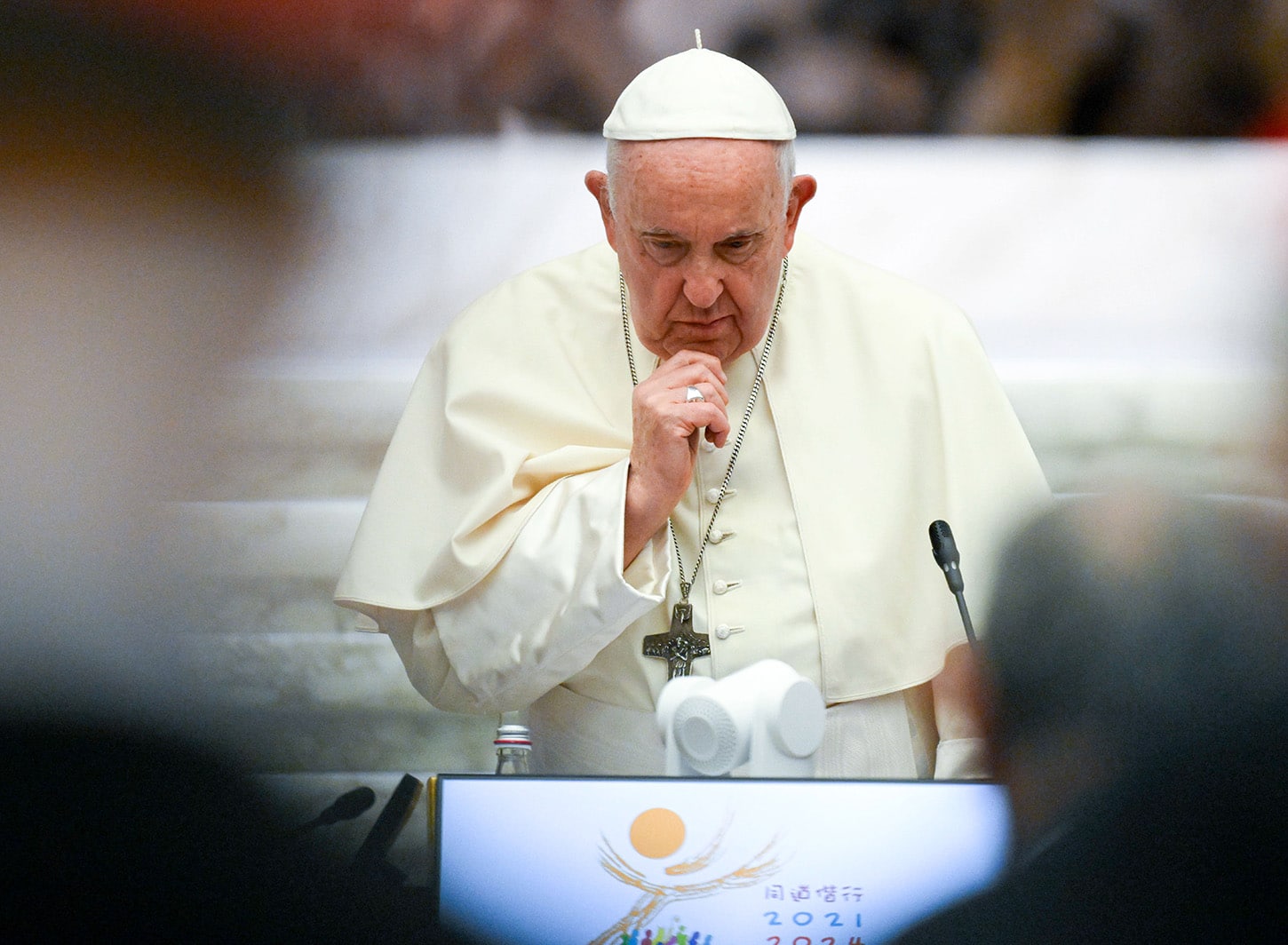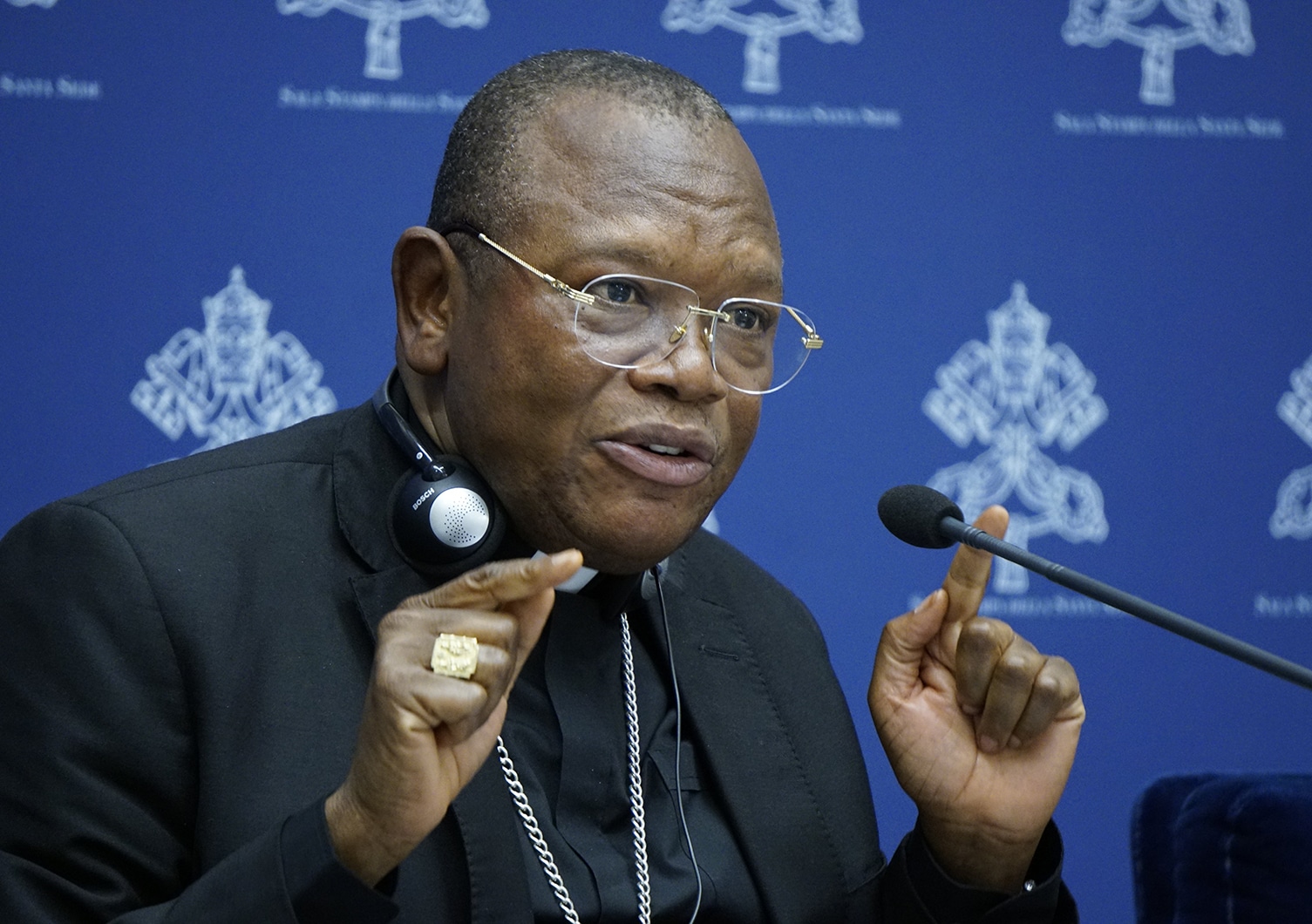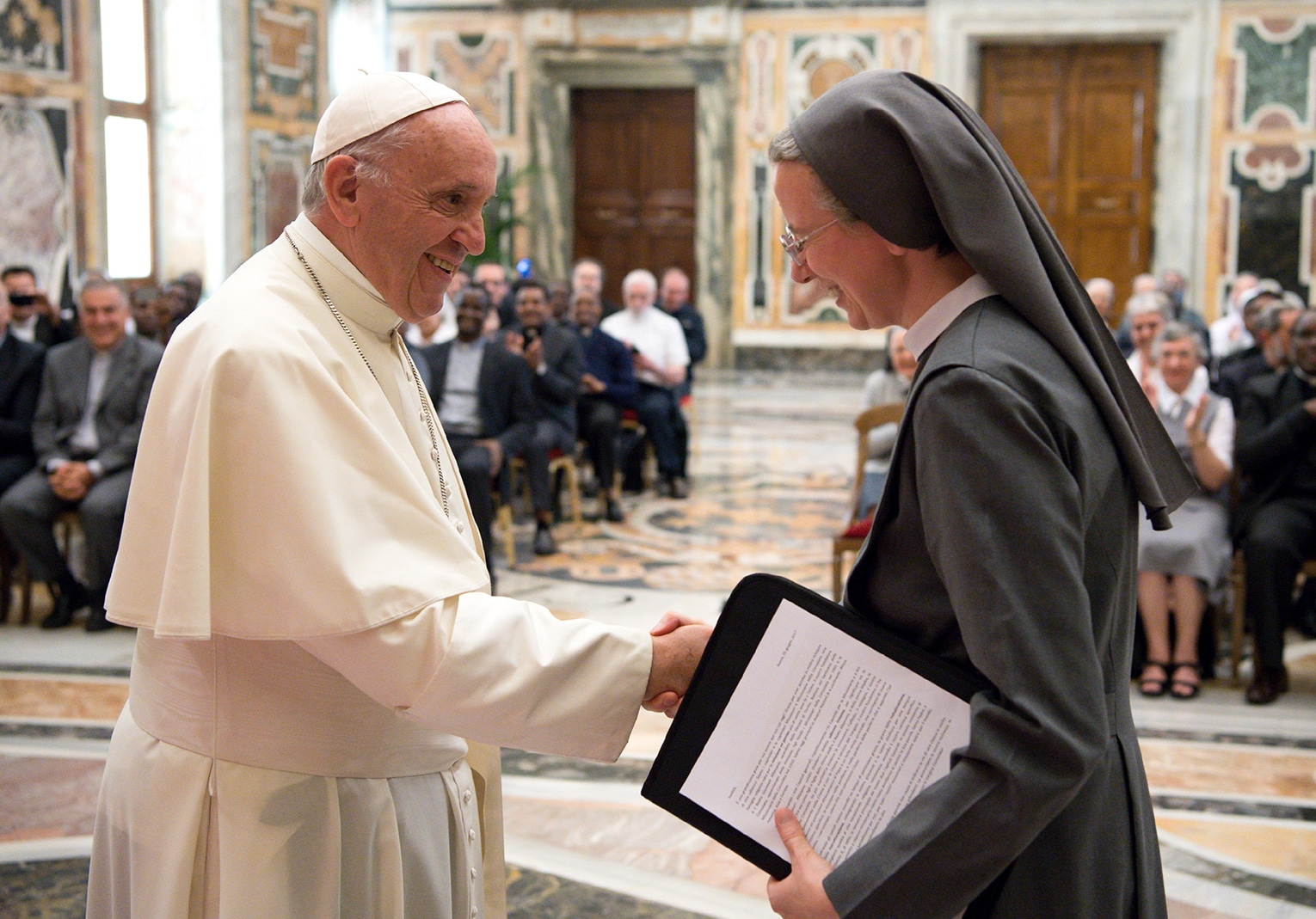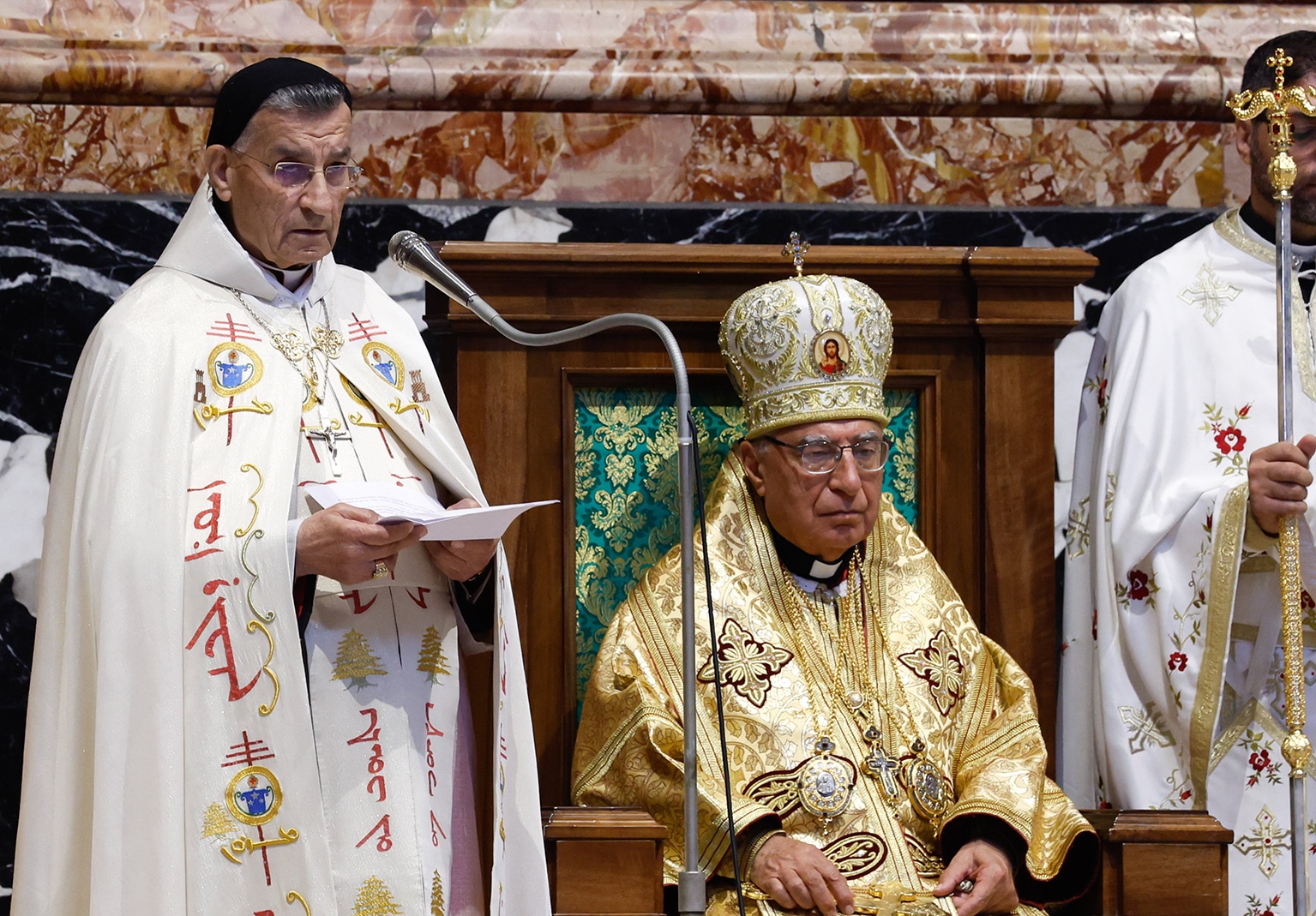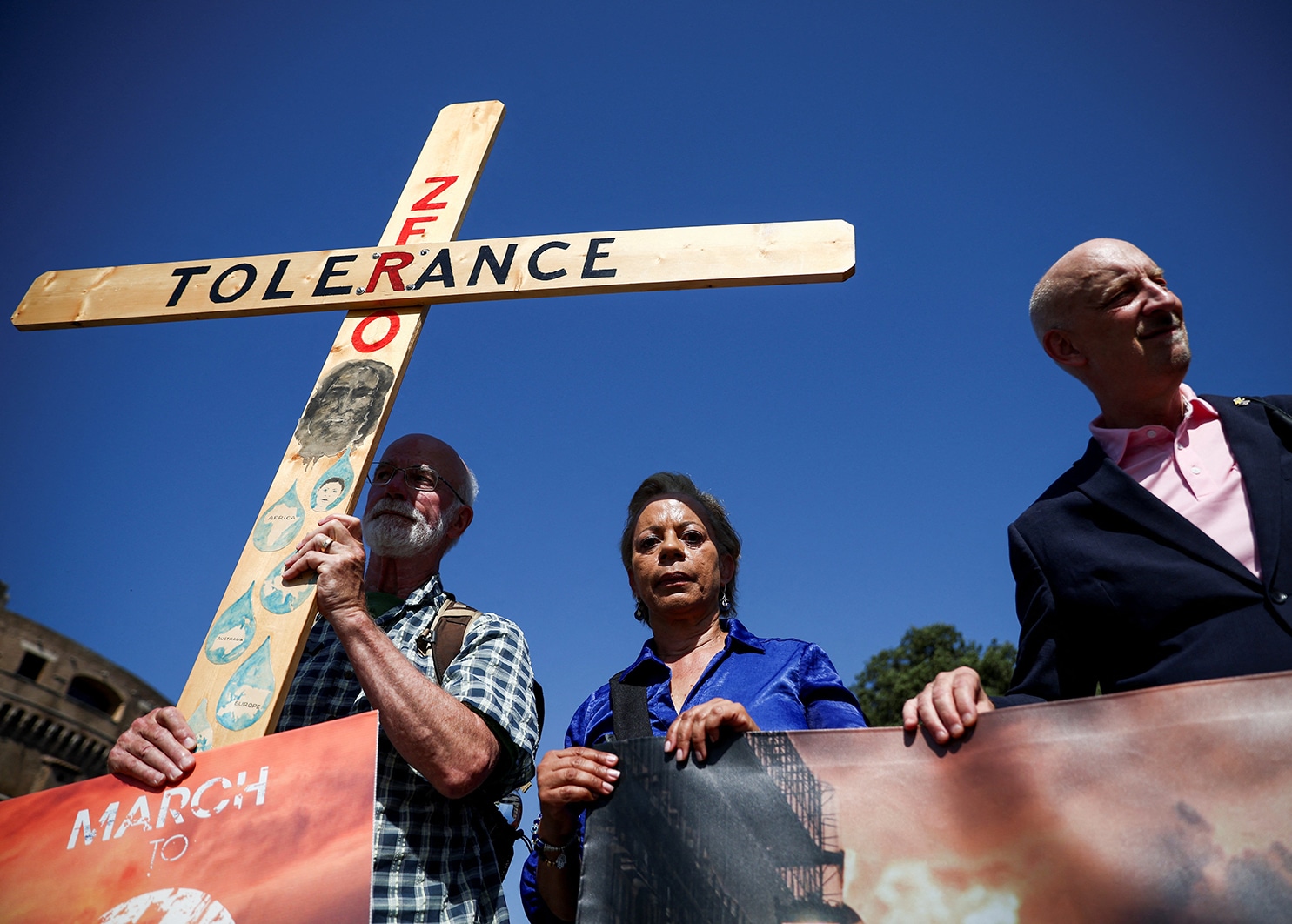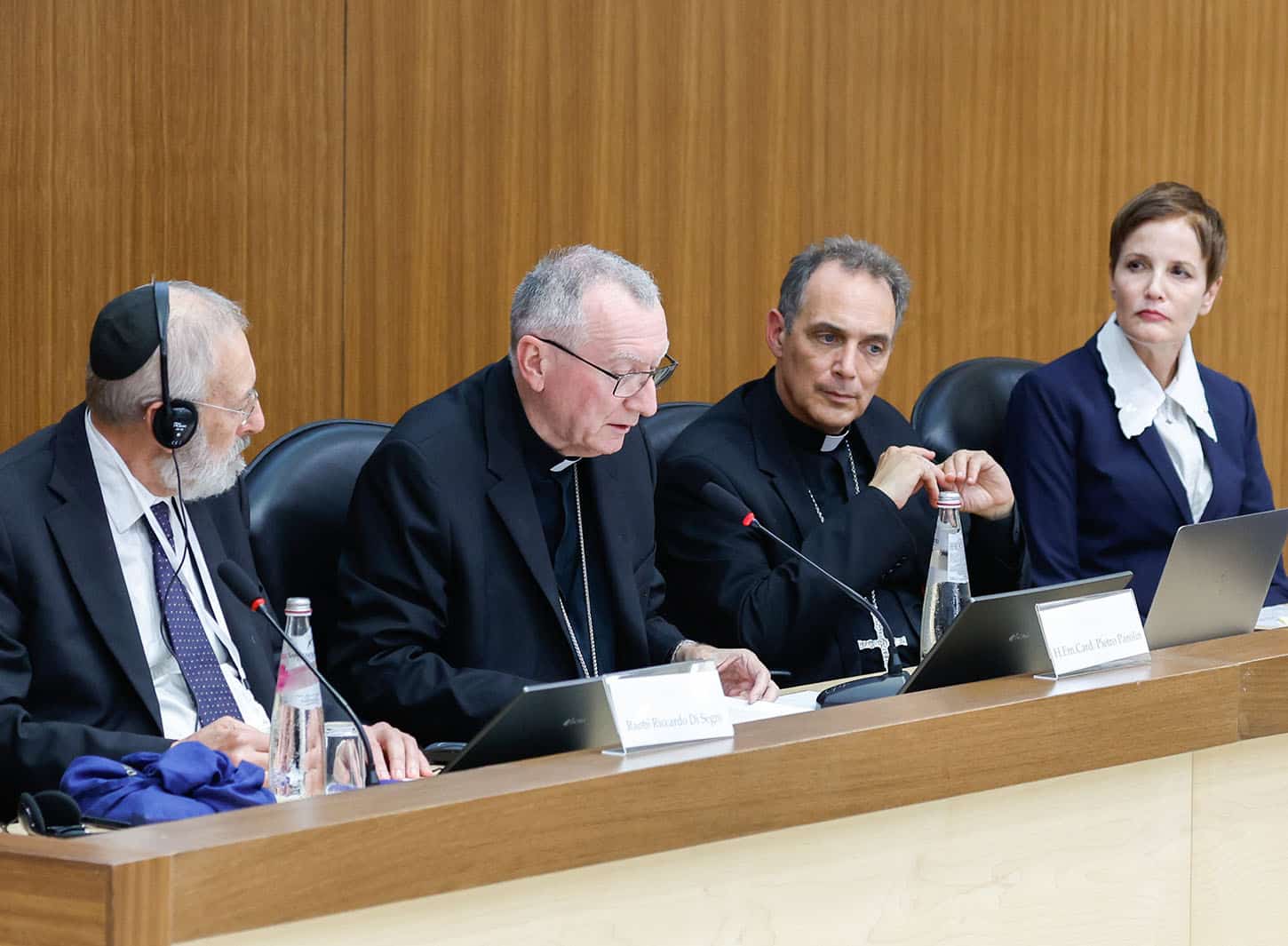VATICAN CITY (CNS) — Christian life is a battle each person must fight against the temptation to be self-sufficient and against a paganism disguised as sacredness, Pope Francis said in an introduction to a small book distributed to participants at the Synod on Synodality.
Such “spiritual worldliness,” he wrote, “though it be camouflaged with the appearance of the sacred, it ends up being idolatrous because it does not recognize the presence of God as Lord and liberator of our lives and of the history of the world. It leaves us prey to our capricious desires.”
The booklet contains two republished essays by the pope that are “united by the concern, which I feel to be a loud call from God to the entire Church, to remain vigilant and to fight with the strength of prayer against every concession to spiritual worldliness,” he wrote in the introduction.
Titled, “Holy, Not Worldly: God’s Grace Saves Us From Interior Corruption,” the booklet was released by the Dicastery for Communication and the Vatican publishing house Oct. 6 and was offered to the more than 350 participants attending the afternoon session of the Synod of Bishops on synodality.
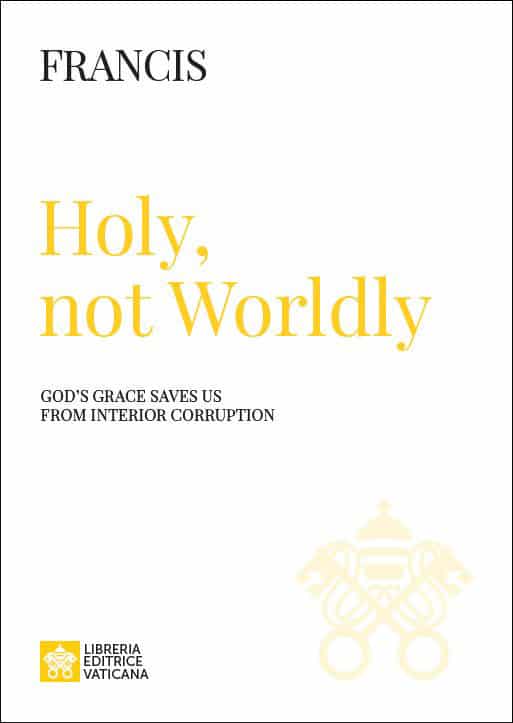
“I offer these texts to the reader as an opportunity to reflect on his life and on the life of the Church, with the conviction that God asks us to be open to His newness, he asks us to be unquiet and never satisfied, searching and never stuck in comfortable opacity, not defended within the walls of false certainties, but walking on the road of holiness,” the pope wrote in the introduction.
‘Christian life is a battle’
“Christian life is a battle” against the temptation of closing in on oneself, he said, and instead to let God’s love dwell within.
“The battle we carry out as followers of Jesus is first of all a battle against spiritual worldliness, which is a form of paganism in ecclesiastical clothing,” he wrote.
This battle is not in vain or without hope, he wrote, “because this battle has already been won by Jesus,” who, with his resurrection, “has made it possible for us to become new persons.”
The cross of Jesus is “the criterion of every choice of faith,” he wrote, because “it is the sign of a limitless love, humble and tenacious. Jesus loved us to the point of the ignominious death on a cross in order that we no longer be able to doubt that his arms will remain open even for the last of the sinners.”
The pope offered a lengthy quote from Blessed Pierre Claverie, the 20th-century martyred bishop of Oran, Algeria: “I believe that the Church dies if it is not sufficiently close to the cross of her Lord. Though it may seem paradoxical, strength, vitality, hope, Christian fruitfulness, the fruitfulness of the Church come from here. Not from elsewhere.”
“All the rest is but smoke in our eyes, worldly illusion. The Church betrays herself, and betrays the world, when it stands like a power among powers, or like an organization, even a humanitarian one, or like an evangelical movement capable of making a splash,” the late bishop wrote.
“This is why I wanted to collect in this short volume two essays which were published at different times,” Pope Francis wrote. The first essay was written in 1991 and updated in 2005 when he was the archbishop of Buenos Aires and is a reflection on corruption and sin. The second essay was the pope’s letter this year to priests of the Diocese of Rome, dated Aug. 5, on “Avoiding hypocritical formalism.”

